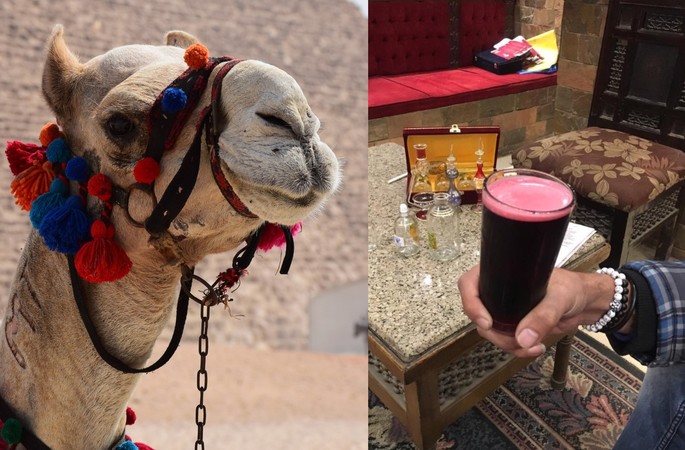My friend Lisa de St Croix, a visionary artist, created a beautiful image of the Star card for the Tarot de St Croix which shows the goddess Nut, a benevolent mother figure stretched over Egypt, streaming blessed rainwater on the dry land beneath.
This image is in my mind as I open my eyes in my hotel room on the banks of the Nile, a river with a colour named after it: the colour of the bags that beautiful jewels from Tiffany & Co. arrive wrapped in, and those sumptuous delicacies in woven willow hampers from Fortnum & Masons.
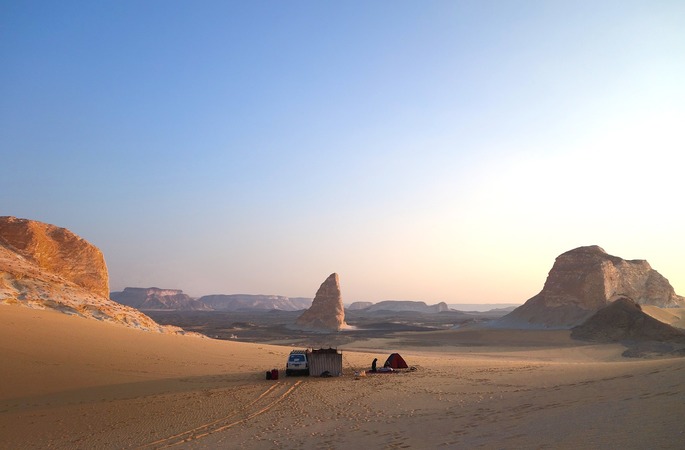
That first morning, I had breakfast out on the small balcony: wheat porridge with honey, and the blackest of coffee. The buildings of Cairo spiked up all around me like needles, like obelisks. But I barely saw them, with my imagination full of the pyramids of ancient times.
The guide and driver had seen these sights a thousand and one times before, so they chatted while I gazed out of the window, watching the landscape gliding past. Suddenly, out of a haze of morning mist and desert dust and my own residual dreams, the familiar shapes rose like stone icebergs in a sea of chalk, limestone and sand.
Close up, the carved blocks of stone which made the Great Pyramid were as smooth as glass. Entering the doorway, I became aware of the tenuousness and fragility of the electricity which kept the string of lights operating in the intermittent alcoves.
The stairs gave way to narrow tunnels, and stepladders. We ascended in a sort of game of steps and ladders, into the labyrinth. Shards of Egypt-related stories superimposed themselves onto my present-day sights, and transformed them into visions. Honey-gold stone and clean sand and soaring clear skies one day, and glum and moody the next.
Outside, it was obvious that the queens’ pyramids were noticeably smaller.
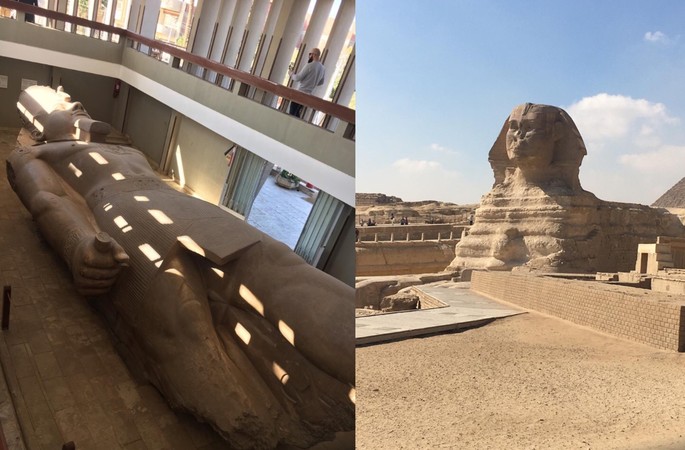
Behind the pyramids, the Sphinx lay in wait, with no fences around her ancientness: you could access all areas for a selfie with her.
King Ramses was lying down when I visited him. His legs had been eroded by the water in which his statue had been discovered. He was built: his torso and arms were those of a man with 400 wives; and the Great Seal Of Authority adorned his muscled, all-powerful hand.
I loved the desert, because it makes every drop of liquid feel precious, even tears and sweat. I have an image of the sun imprinted on my shoulder. And the image of the sun impacted on my mind, and the solemn, solid statues holding a vigil in that stencilled land.
The camel ride was enlivened by the camel driver, who lent me his rakish checked headgear, and showed me how he could take photographs which made it look as if I was balancing the pyramids in my hand, or riding across a vast panorama in a silken garment worthy of an intrepid explorer.
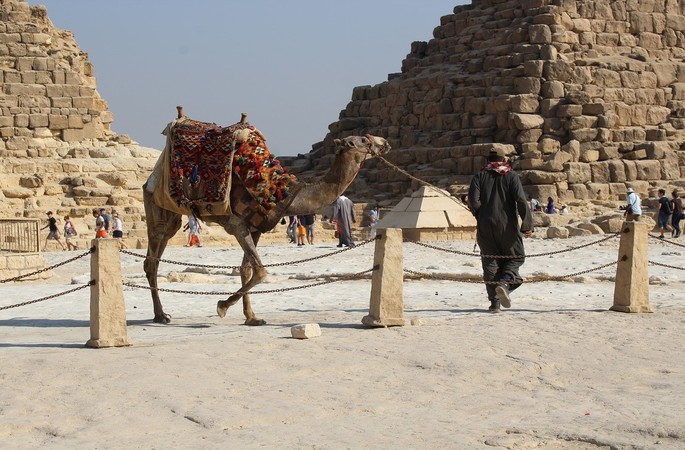
There was a visit to a papyrus maker, where I purchased a black and blue picture of the cat goddess Bast for a friend whose pet had recently passed away, to help him reconcile himself to his loss. The papyrus men rolled it into a beautiful scroll, but he asked me to take a picture of it, so I undid the cylinder and weighed it down to flatten it, with the stout salt and pepper pots from the room service tray in my hotel.
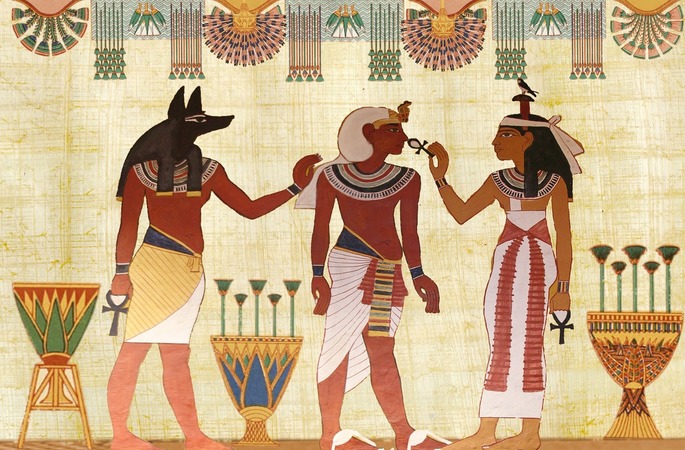
Outside, the city of Cairo was variegated and segregated: friends who live there told me that the poor are being relegated to another realm. The rich have created a fully alternative parallel universe, in which they move, designer scarves flowing, their every action documented on Instagram. They are going to build a whole separate city soon, so the sights and sounds and smells of the poor don’t offend them.
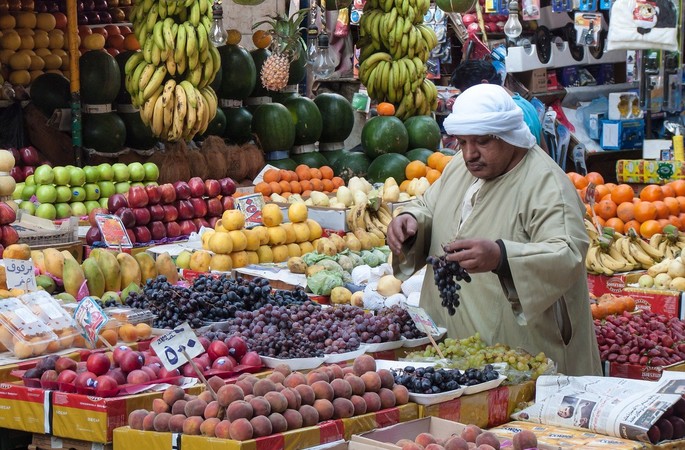
I noticed in passing that there are numerous spectacle and eyewear shops in Cairo: I saw at least 5 within 150 meters. Is it the haze, that makes Egyptians careful of their vision? Is it the residue of the legends, like mirages that prove real? Or the pollution that affects all cities, these days?
I got back to Sri Lanka to find that my own eyes had been affected. Too much sun, too much sand? All the lush hues of green hit me like a ton of limes. My fresh lime juice makes me green with wistfulness, for my brief blue and gold days by the Nile.

